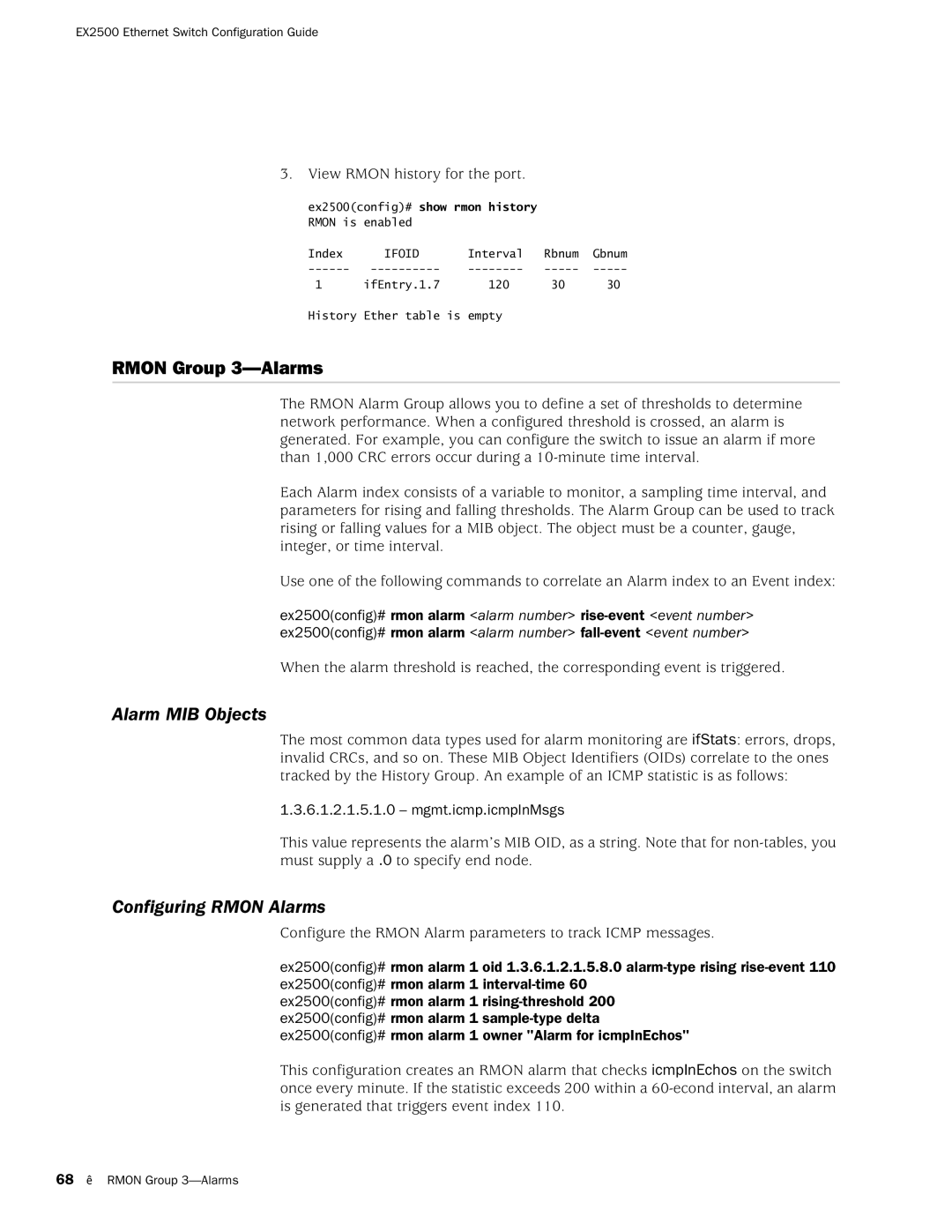EX2500 Ethernet Switch Configuration Guide
3. View RMON history for the port.
ex2500(config)# show rmon history RMON is enabled
Index | IFOID | Interval | Rbnum | Gbnum |
1 | ifEntry.1.7 | 120 | 30 | 30 |
History | Ether table is empty |
|
| |
RMON Group 3—Alarms
The RMON Alarm Group allows you to define a set of thresholds to determine network performance. When a configured threshold is crossed, an alarm is generated. For example, you can configure the switch to issue an alarm if more than 1,000 CRC errors occur during a
Each Alarm index consists of a variable to monitor, a sampling time interval, and parameters for rising and falling thresholds. The Alarm Group can be used to track rising or falling values for a MIB object. The object must be a counter, gauge, integer, or time interval.
Use one of the following commands to correlate an Alarm index to an Event index:
ex2500(config)# rmon alarm <alarm number>
When the alarm threshold is reached, the corresponding event is triggered.
Alarm MIB Objects
The most common data types used for alarm monitoring are ifStats: errors, drops, invalid CRCs, and so on. These MIB Object Identifiers (OIDs) correlate to the ones tracked by the History Group. An example of an ICMP statistic is as follows:
1.3.6.1.2.1.5.1.0 – mgmt.icmp.icmpInMsgs
This value represents the alarm’s MIB OID, as a string. Note that for
Configuring RMON Alarms
Configure the RMON Alarm parameters to track ICMP messages.
ex2500(config)# rmon alarm 1 oid 1.3.6.1.2.1.5.8.0
ex2500(config)# rmon alarm 1
This configuration creates an RMON alarm that checks icmpInEchos on the switch once every minute. If the statistic exceeds 200 within a
68 RMON Group
